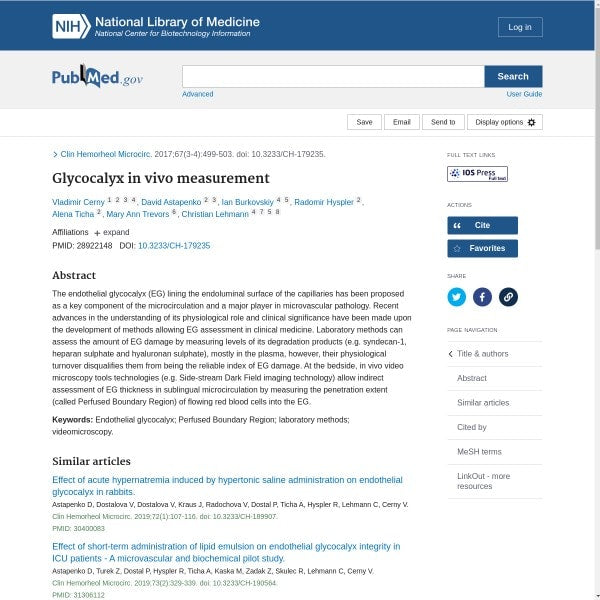
Glycocalyx in vivo measurement
Share

Abstract
The endothelial glycocalyx (EG) lining the endoluminal surface of the capillaries has been proposed as a key component of the microcirculation and a major player in microvascular pathology. Recent advances in the understanding of its physiological role and clinical significance have been made upon the development of methods allowing EG assessment in clinical medicine. Laboratory methods can assess the amount of EG damage by measuring levels of its degradation products (e.g. syndecan-1, heparan sulphate and hyaluronan sulphate), mostly in the plasma, however, their physiological turnover disqualifies them from being the reliable index of EG damage. At the bedside, in vivo video microscopy tools technologies (e.g. Side-stream Dark Field imaging technology) allow indirect assessment of EG thickness in sublingual microcirculation by measuring the penetration extent (called Perfused Boundary Region) of flowing red blood cells into the EG.
